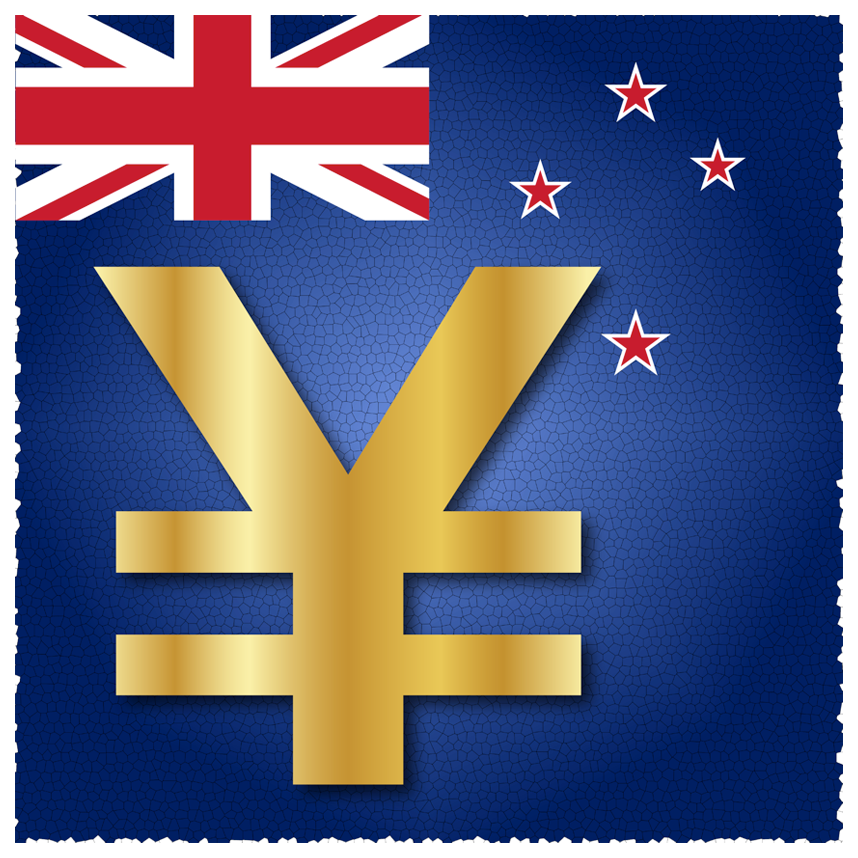How New Zealand could become a ‘province’ of China with the flick of a switch.
Cryptocurrency
You have all heard of Cryptocurrency, Digital Currency, eCurrency, the Blockchain.
Private cryptocurrencies have been around since 2008 when the ‘pseudo-personality’ Satoshi Nakamoto published a white paper on it. Bitcoin was released in early 2009.
You have watched Bitcoin soar to $30,000 USD a bitcoin only to fall spectacularly, wiping out the fortunes of pundits worldwide.
Since then, thousands of private ‘digital coin’ offerings have emerged with many not surviving much past their offering. The technology, however, has been progressing and is quite robust.
Some of the fundamental ‘primary directives’ for the creation of a digital currency are:
- Digital currency payments are to be sent and received completely anonymously.
- The payments cannot be tracked.
- The payment confirmation stream is to be handled by a very secure network, having at its core a form of encryption called blockchain (a network of many duplicate encrypted copies of the transactions having no single source point of failure) which makes data impossible to break or alter.
Sovereign Cryptocurrencies
What about a digital currency created by a country? Would they still hold to these ‘prime directives’?
Simple answer: NO
Why?
A country, in order to provide fiscal transparency as well as prevent illegal business transactions (such as drug trafficking, arms sales, human trafficking, [tax evasion], and other criminal activities) will want to be able to TRACK the sending and receiving of payments as well as very clearly IDENTIFY both the sender and receiver.
Conceivably, one could also therefore track the entire financial transaction chain of a product from manufacturing to end sale — eliminating black market sales and money laundering.
Less than scrupulous countries will also want to be able to SHUT OFF and STOP the access to funds for certain citizens or groups — for national security [of course].
China: Digital Yuan
In November 2019, the China central government starts a crackdown on virtual currency initial coin offerings and cryptocurrency trading – which are already banned in the country – in response to a surge in blockchain fever.
In December 2019, China rolled out new rules governing online encryption, “paving the way for a digital version of the yuan and taking greater control over cyberspace”.
In February 2020, the People’s Bank of China (PBOC) reportedly filed 84 patents relating to its plans to launch a digital currency.
In March 2020, during the Coronavirus panic that had its entire country shut down, China announced that it would become the first country to introduce a digital version of its currency, the Yuan.
Citizens would be able to take their physical money to any bank and convert it into the new Yuan digital currency and use it to make payments using their computers and phones [and upcoming physical implanted ID chips, perhaps via Bill Gates?].
Currency Stability
Nations used to have the value of their currency tied to the amount of physical gold they held in reserve.
Uncoupling currencies from the gold standard further fuelled the form of gambling called Currency Speculation. It also, to a great extent, destabilised national currencies.
In the 1990s, Don Brash, while governor of the Reserve Bank of New Zealand, sold ALL of New Zealand’s gold reserves.
Our Official Information Act Request to the Reserve Bank of New Zealand asked for the following information:
- When did this gold sale occur?
- How much gold was sold (weight)?
- Was it the entirety of New Zealand's reserves?
- What price was fetched for the sale?
- To whom was the gold sold?
The Reserve Bank turned down our request:
Dear Mr. M
Thank you for your request of 12 April 2020 for answers to the following questions regarding...
...
Our Response
Your request requires a physical search that cannot be safely undertaken during COVID-19 Alert Level 3. I am therefore refusing your request under section 6(d) of the OIA, as making the information available at this time would “be likely to endanger the safety of [a] person.”
We invite you to resubmit your request after the country moves to Alert Level 1. If you would like information on when you can resubmit your request, please contact the writer.
You have the right to seek an investigation and review by the Ombudsman of this decision.
Information about how to make a complaint is available at www.ombudsman.parliament.nz or by Freephone 0800 802 602.
Yours sincerely
------- --------------
Ministerial and OIA Adviser
Reserve Bank of New Zealand | Te Pūtea Matua
This, folks, is how you keep control of the information so that people cannot question what you are doing [and hopefully the requestors will get tired of waiting and simply sod off].
Unbelievable, really. A physical search in filing cabinets in a TOTALLY EMPTY archive is likely to "endanger the safety of a person”.
The information that I was requesting SHOULD HAVE ALREADY BEEN ONLINE as transparency would warrant, but it is not.
By the way, Dr Brash now works for the Industrial and Commercial Bank of China (ICBC).
On 18 May 2020, the Reserve Bank said ICBC will operate in New Zealand as a branch.
Curious and more curious.
Situation Analysis
One of the functions of an Intelligence Analyst is to run projections on the most probable outcomes of a situation using the current real-world data and information.
Let’s look at how we can do that here with regard to cryptocurrency and the New Zealand dollar.
Fixing the NZD to the Yuan
“A fixed exchange rate is a regime applied by a government or central bank that ties the country's currency official exchange rate to another country's currency or the price of gold. The purpose of a fixed exchange rate system is to keep a currency's value within a narrow band.” – investopedia.com
What would fixing the NZD to the Yuan do for New Zealand?
It would take out any currency fluctuations between the two countries. Exchange rates would remain constant. Raw materials purchased from New Zealand and finished goods purchased from China (and vice versa) would not be at the mercy of fluctuating exchange rates. This would bring some added stability to market prices across both countries.
So, from the outset, this would appear to be a reasonably good idea.
The Wild Card
About mid-April we were given some information: “The New Zealand government would be releasing a digital currency in the not too distant future.”
Our analysis of this new information:
- While New Zealand has some brilliant people [I know, I have met them], it greatly lacks in follow-through on large projects, particularly with software and data infrastructure. There is very little long-term planning.
We don’t need to look far to see the proof:- The $30 Million budget blow-out of the Joint Border Management System (JBMS) — a plagued $104m IT project that was started in 2011 and supposed to have finished in 2012 but may have been completed in 2019.
- The train wreck of Novopay, the web-based payroll system for state and state-integrated schools in New Zealand, by the start of 2015, the cost of repairing issues had risen to $45Million on top of the original $30Million cost to develop it. In addition, the Oracle platform on which it was developed will no longer be supported after 2019 -- which means an entirely new system needs to be written.
- A lack of a truly stable and redundant [and secure] nationwide communications infrastructure.
- A lack of bank-class data centres.
- No RFQ (Request for Quotations) on any cryptocurrency endeavours by the NZ Government, Treasury, or Reserve Bank.
From this analysis, we don’t believe that the New Zealand government could or will produce a working cryptocurrency platform itself in the near future.
So, if the new data we were given were true, then how could that be accomplished? By implementing an already active sovereign-generated cryptocurrency.
Australia is not making one, and the US is still weighing the pros and cons of implementing one, so that leaves only one country that currently has one: China.
Oddly enough, the information we received was only a couple of weeks after China announced the Digital Yuan.
The Digital Silk Road
Buying into China’s digital Yuan could be accomplished in steps.
Since all of the processing hardware and blockchain would already exist in China, the first step, in actuality, could essentially be another button on the EFTPOS machine.
Integrating cryptocurrency into banking, IRD, and other systems could take a lot less time than one would think. Eliminating cash, a Kiwi favourite way to transact would be the most difficult.
Extracting the system once implemented, however, would be excruciatingly problematic and costly.
Our Debt
Our national debt: government, housing, personal, business, agriculture, Councils, etc. were running between $575Billion and $650+ Billion depending on which form of ‘government transparency’ you believe.
Post-COVID-19, however:
Total New Zealand Debt as of May 2020: Between $650Billion to $725Billion
Government Debt to GDP is around 30% [no transparency].
Total New Zealand Debt to GDP is 311%+.
The amount that is owed to China by itself, is staggering — and the lack of transparency with regard to this is worthy of treason.
Having the Digital Yuan embedded into the financial structure of New Zealand would put us at an incredible disadvantage if China were to ever ‘call in’ our debt.
But we no longer have any gold reserves and there isn’t any ‘Plan B’.
The answer, in that scenario, is plain to see, comrade.
So, what the heck is going on?
Research & Investigation
Something can be done about this.
Sources:
https://www.coindesk.com/chinas-central-bank-heres-the-latest-on-the-digital-yuan
https://asiatimes.com/2020/03/china-is-step-closer-to-launching-digital-yuan/
https://news.bitcoin.com/pboc-digital-currency/
© TheShadow.info
www.theshadow.info

